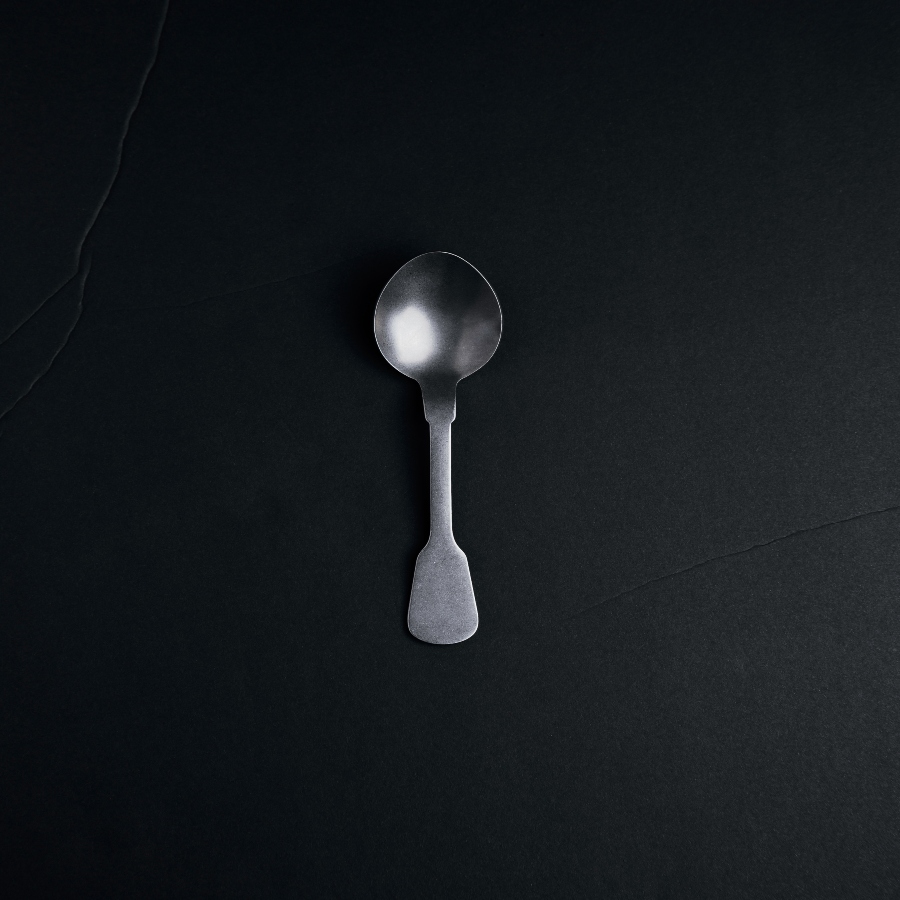We’re having lunch at the faux restaurant. My mom is eating her fish at a glacial pace, and I’ve moved on to dessert. Without warning, she reaches over, scoops up a forkful of my ice cream, and spreads it over her fish. Disgusting, I think, but I say nothing. Why? Because we live in Dementia Landia. In this world, it’s fine to eat fish with ice cream sauce. In fact, pretty much anything is okay in this ecosphere, as long as you’re not hurting anyone.
A young man with expertly twisted hair and a name tag that reads “Faithful” comes to the table to clear the plates. He solemnly examines my mother’s dish. “Fish. With ice cream,” he states. “I’ll have to try that sometime.” He says this without irony.
I let out the breath I’ve been holding and smile at him, a nonverbal thank you for his kindness. It’s reassuring that Faithful also abides by the local customs here at the memory care village where he works and my mother lives. He nods gravely and moves on to another table and another story.
We continue with our silent meal. In the world where we used to live, before we were sent to this land, we were writers. Language was our medium, talk our currency. Analyzing, commenting, arguing, gossiping, revealing, bantering, chatting, discussing, joking, bickering, schmoozing, observing, remarking, pronouncing, articulating, proposing, kibitzing, challenging, agreeing, deliberating, and confiding. We talked about the terrors and pleasures of love and marriage. About the many kinds of heartache and loss. About books, plays, movies, friendship, war, peace, poetry, capitalism, communism, injustice, and stupidity. About food, history, sex, and comedy. These days, we still talk, but in much shorter sentences. If I string too many words together, she looks distressed. Sometimes, I lean over and speak directly into her hearing aid. Other times, she’ll say, “Slow down.”
I’m wolfing down the ice cream when I remember that we had ordered the bowl to share. I put my spoon down. But now, without the sweet dish to sedate me, sadness seeps into the gap. It spreads everywhere. I sigh, blowing out a noisy gust of air. My mom, fastening her empathetic coal-black eyes on me, reaches over to stroke my hand. In spite of everything, she’s retained her supersonic mother skills. A wave of love sweeps over me, and I curl my hand into hers.
I try to stay in the present, I do, but I’m already racing into the future. Fast-forwarding to this evening. When I will steel myself to leave. When I will say goodbye and she will try to come with me and I will explain I have to fly back home to San Francisco, and she will insist angrily that she will get on the plane with me and I will nod in understanding and hug and kiss her goodbye. When I will rush through the lobby, tears pooling, with an almost giddy sigh of relief. When the loudest of the competing voices in my head will rise above the others to accuse: You are a bad daughter.
In Dementia Landia, we caregivers tend to have an ongoing soundtrack. A guilt track. We each have a signature version, and mine has a distinctly Jewish rhythm, a sort of davening quality. It goes like this: If only we had enough money for 24-hour caregivers she could be back home, where it would be familiar and comforting. And then she would be happy. If only I had a big house and she could come live with us and if only that wouldn’t make us all insane. If only I had moved her up to be near me in San Francisco. If only I knew the right thing to do.
A childhood image of my mother rises up out of nowhere. She’s in the tiny room off the kitchen we called her office, her fingers flying over the typewriter keys, her cigarette burning in the ashtray, writing for hours, far away, in a world of her own making. Late in the afternoon, she stops working just in time to cook dinner for me and my sister, and our dad. Maybe she’s still there, in a parallel universe, banging on the keys, lost in thought.
My mother is done with her fish combo. She pushes away her plate, and I nudge the bowl of ice cream over to her. She takes a bite, says, “It doesn’t taste like anything.” Then she takes another spoonful.
I nod and smile, my head bobbing up and down like one of those dolls on the dashboard of a car. How I wish it tasted good to her, and how I wish I could change things. My next bite has a metallic edge. I put the spoon down. I’m so tired. I don’t like Dementia Landia. I’m lost here. There’s no GPS, not even an old-fashioned map. It’s not only that I don’t know where we are, I don’t know when we are. In this land, time is elastic.
My mom tunes into my wavelength again. This time her piercing eyes say come back. I make a soft landing, arriving back from hyperspace with a thump.
She points to the ice cream. “Have some more.”
I take a bite, and now the metallic edge is gone. It has the round, buttery taste of vanilla beans.
She nods and takes another bite.
We eat slowly.
Together, we finish every last endless spoonful.

